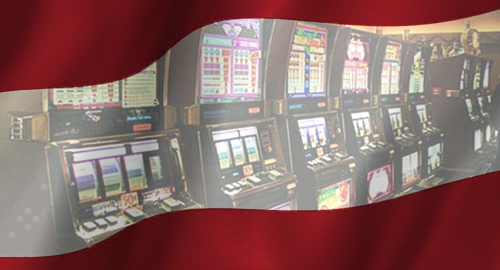 Latvia’s gambling market continued to grow in the second quarter of 2019 even as the government proposes further curbs on gaming activity.
Latvia’s gambling market continued to grow in the second quarter of 2019 even as the government proposes further curbs on gaming activity.
Figures released last week by the Lotteries and Gambling Supervisory Inspection of Latvia (IAUI) show state-licensed gambling operators generated combined revenue of €77.4m in the three months ending June 30. The sum is roughly on par with Q1’s figures, while the H1 total is up 14.7% year-on-year to €154.4m.
Land-based slot machines continue to dominate Latvia’s market, with revenue of €111.5m in H1, significantly greater than casino table game revenue of just over €8m.
The nine online gambling operators holding IAUI licenses generated combined revenue of €13m in Q2, a modest uptick from Q1, while the H1 total was up nearly 39% to €25.4m. Online casino revenue rose 40% to €18m in H1, while sports betting improved 35.3% to €7.1m and online poker was up nearly two-thirds to €193k.
The IAUI’s efforts to keep Latvian bettors away from internationally licensed online gambling sites continued unabated, with 51 new domains added to the country’s blacklist, bringing the total number of offending sites to 1,166 since the regulated market’s launch in 2014.
Meanwhile, the government has proposed amending the country’s gambling regulations to give the IAUI greater access to interactive licensees’ internal data, through both on-site and remote inspections. The government has given stakeholders until August 9 to comment on the proposed amendments and the recommendations will be submitted to the Cabinet of Ministers by September 26.
The Ministry of Health is also seeking further curbs on land-based gambling operators, including smoking bans in arcades and casinos, as well as prohibiting operators from plying customers with comped alcohol and requiring hungry gamblers to disengage from their gambling activity in order to access the venues’ food services.
In 2017, Latvia’s capital Riga approved a plan to significantly reduce the number of gambling halls in the city’s historic center district, with exceptions made only for operations based in four- or five-star hotels. Other Latvian cities have publicly mulled the possibility of following Riga’s lead.
The Ministry was prompted to act following a survey that revealed 6.4% of respondents were considered to be problem gamblers. The survey also showed 77% of respondents were in favor of reducing the country’s number of gaming halls, while 59% supported an outright ban on all gambling products.
Since July 1, Latvia’s problem gamblers have had access to government-provided psychological counselling to address their issues. The offer also applies to the gamblers’ family members, who can participate individually or as a group, while the consultation is also available over the phone or via Skype.